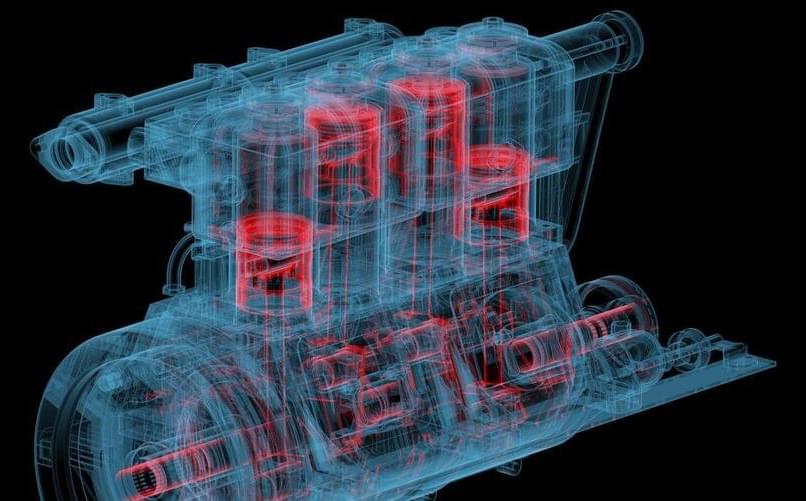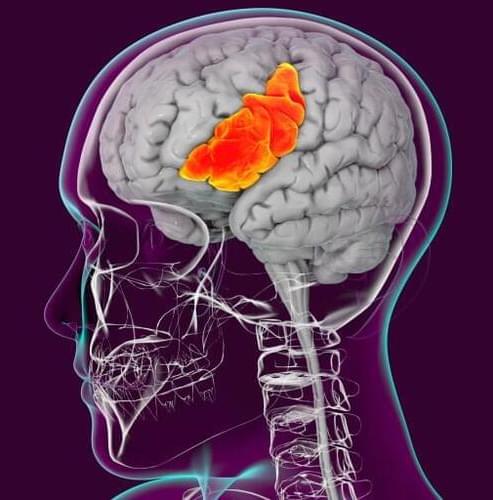Will it actually transform the future of driving?



A simulation-generated image reveals how charge distributions and gas densities vary in the plasma that floats across our universe.
By Alex Wilkins

Transferring information from one location to another without transmitting any particles or energy seems to run counter to everything we’ve learned in the history of physics.
Yet there is some solid reasoning that this ‘counterfactual communication’ might not only be plausible, but depending on how it works could reveal fundamental aspects of reality that have so far been hidden from view.
Counterfactual physics isn’t a new thing in itself, describing a way of deducing activity by an absence of something. In one sense, it’s pretty straight forward. If your dog barks at strangers, and you hear silence when the front door opens, you’ve received information that says a familiar person has entered your house in spite of the absence of sound.

JULIEN CROCKETT: Let’s start with the tension at the heart of AI: we understand and talk about AI systems as if they are both mere tools and intelligent actors that might one day come alive. Alison, you’ve argued that the currently popular AI systems, LLMs, are neither intelligent nor dumb—that those are the wrong categories by which to understand them. Rather, we should think of them as cultural technologies, like the printing press or the internet. Why is a “cultural technology” a better framework for understanding LLMs?

Cesarean section or C-section is a surgical procedure that delivers a baby through an abdominal incision. It is commonly used when the physicians believe it is a safer route for the parent, baby, or both. Cesarean section has appeared throughout history including Ancient Greece, India, Egypt, and Rome. There are even passages on cesarean section in different religious texts. It is believed that the name was attributed to the way Juluis Caesar was born. However, in Ancient Rome a cesarean section was only performed if at the time of birth, the mother was fatally ill and could not deliver naturally. It has been recorded that Julius Caesar’s mother was present during his life, therefore, historians believe he was not delivered through a cesarean section. Medical historians now believe the term originated from a decree in which Julius Caesar ordered women fated by birth to have a cesarean section which in Latin is “Caesones”. To this day, it is still incompletely understood where the name originated.
Cesarean sections are now routinely performed, and the procedure is well established. Interestingly, long-term effects of cesarean sections are not well known. Previously physicians noted no difference in health outcomes between children born through vaginal birth or cesarean section. Recently, however, a research group at the University of Cambridge found that a single dose of the measles vaccine is 2.6 times more likely to not be effective in children born through cesarean section. Unfortunately, a lack of vaccine efficacy leads to weakened immunity due to an inadequate number of antibodies produced to fight infection. While the first vaccination produced little efficacy, researchers demonstrated that a second measles vaccine was comparable to vaginally born children. More specifically, the vaccine was effective and produced the necessary antibodies to fight infection.
The recent paper published in Nature Microbiology by Dr. Henrik Salje, concluded the long-term effects of cesarean section delivery. Researchers suggest an increased risk of measles outbreak among children that were born through cesarean section and had only one measles vaccination. Salje and others explain that lack of vaccine efficacy is linked to the infants’ gut microbiome. It is well established that children receive great exposure to healthy microbes through vaginal birth, which boosts their immune systems. By avoiding microbe exposure through cesarean section, the infant loses critical immune protection.

One of the trade-offs of today’s technological progress is the big energy costs necessary to process digital information. To make AI models using silicon-based processors, we need to train them with huge amounts of data. The more data, the better the model. This is perfectly illustrated by the current success of large language models, such as ChatGPT. The impressive abilities of such models are due to the fact that huge amounts of data were used for their training.
The more data we use to teach digital AI, the better it becomes, but also the more computational power is needed.
This is why to develop AI further; we need to consider alternatives to the current status quo in silicon-based technologies. Indeed, we have recently seen a lot of publications about Sam Altman, the CEO of OpenAI topic.



A new discovery could pave the way for supercapacitors that can charge phones and laptops in 60 seconds and electric cars in a mere ten minutes.
In a press release, the University of Colorado at Boulder announced that its researchers have achieved a breakthrough when it comes to our understanding of the way charged ion particles behave — a discovery that could be the key to figuring out the logistics for the long-anticipated energy storage capabilities of supercapacitors.
Supercapacitors have long been proposed as a means of charging electronics lightning-fast, but until now, figuring out how to increase the energy density to match or exceed those of lithium-ion batteries has, for the most part, eluded scientists. Compared to conventional batteries, which can store as much as ten times more energy than today’s supercapacitors, this technology has remained in the realm of the possible but not yet practical.
Armed with up to $39 million in federal funding, a dream team of researchers from three Colorado campuses aims to end osteoarthritis.